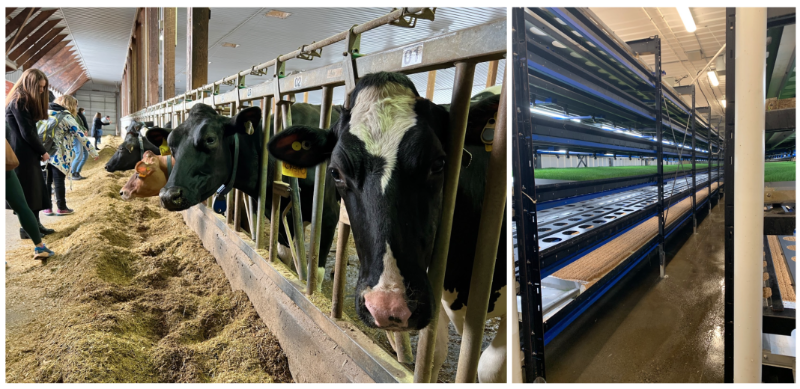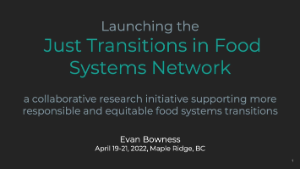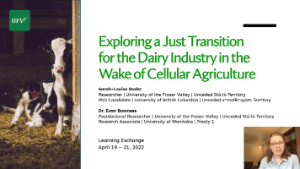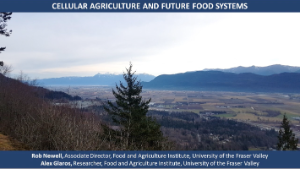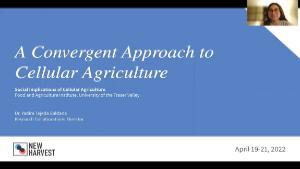Social Implications of Cellular Agriculture ‘Learning Exchange’
-800x571.jpeg) |
Pictured: Group of participants and organizers who joined for a group photo on Day 1 of the Learning Exchange in front of Loon Lake, April 2022
From April 19th to 21st, 2022, the Food and Agriculture Institute convened an in-person workshop and learning exchange on the “Social Implications of Cellular Agriculture.” We gathered at UBC’s Loon Lake Lodge on the traditional, ancestral, and unceded territory of the q̓íc̓əy̓ people.
We intentionally made space for dialogue on cellular agriculture technologies development, governance, and implications with representatives from a variety of interested groups. We hosted Indigenous peoples and elders, people working in agriculture and food sectors, NGOs, technology developers, entrepreneurs, social science and natural science researchers, educators, and students.
Over three days, the program included a series of interactive sessions where individuals could share their hopes and concerns about the emerging cellular agriculture industry, centring primarily on the use of these technologies to create salmon and dairy products. The learning exchange also involved participants asking questions and sharing knowledge and ideas to make the most of the wealth of experience and diversity of perspectives in the room.
We discussed a wide variety of social, cultural, political, environmental, economic, and ethical considerations for this emerging food production method – making space for critique and concerns as well as opportunities and enthusiasm. The conversations addressed critical environmental issues, animal welfare, cultural traditions, relationships with food and species, policy-making, economic transitions, and others.
We explored the following questions (among many others):
- Who will push and lead the development of cellular agriculture, and what are the implications of having different actor groups leading the charge (e.g., large corporations, venture capitalists, start-ups, universities, governments)?
|
- What are the objectives of transitioning to cellular agriculture (e.g., environmental, economic, animal welfare, etc.)? Who sets the agenda? How are visions and priorities of different groups interacting?
|
- Can there be co-existing agricultural paradigms, that is, cellular agriculture, conventional agriculture, and Indigenous and other traditional food ways? What are the possible and likely pathways?
|
- What food production systems will cellular agriculture technologies and their supporters disrupt or aim to replace (e.g., farmed salmon versus wild catch)? What are the implications of possible disruption or replacement?
|
|
|
|
|
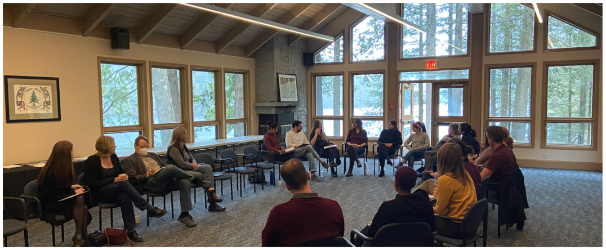 |
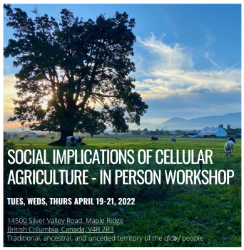 |
Pictured: Discussion from Day 3 of the Learning Exchange, April 2022
The Learning Exchange included two field trips to gain a better understanding of the local agricultural, ecological, and sociocultural contexts in BC that stand to be affected by the introduction of new technologies and products, sparking conversations and questions about how cellular agriculture can be developed in a responsible way.
-800x567.jpeg) |
Pictured: Group of learning exchange participants during the Stó:lō Cultural tour of the Sumas Region with Naxaxalhts’i Sonny McHalsie, April 2022
Pictured: Group of participants during the EcoFarm tour visiting the cows (left) and the EcoFarm's HydroGreen automated livestock feed system (right), April 2022
A subset of the pre-recorded workshop presentations are archived here and freely available to watch:
The Food and Agriculture Institute is building on the lessons from the Learning Exchange by coordinating and inviting paper submissions to a special issue in Frontiers in Sustainable Food Systems. The topic of the issue is “The Social Implications of Cellular Agriculture and the Future of Food” (see the journal’s website for more information).
We are grateful for our funders and partners that made this event possible. Thank you to our supporters:
-800x571.jpeg)



-800x567.jpeg)
